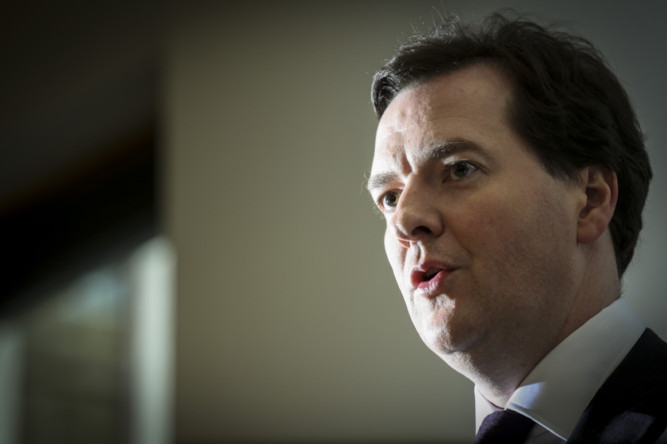George Osborne will seek to show he is on the side of hard-pressed families as he delivers his Budget amid a grim economic backdrop.
The Chancellor is expected to speed up progress towards a £10,000 tax-free personal allowance, delay or even scrap a fuel duty hike scheduled for the autumn, and abolish the so-called beer tax.
But the financial package is set to be dominated by questions of how to revive the ailing economy, with the Office for Budget Responsibility (OBR) likely to downgrade growth forecasts and predict sharply higher borrowing.
Mr Osborne has already signalled that a fresh round of cuts will be imposed on some Whitehall departments over the next two years in order to free up £2.5 billion for extra spending on housing and other infrastructure.
However, senior Liberal Democrats have been urging around £15 billion of investment funded by more borrowing. Labour and some Tory backbenchers, meanwhile, have called for significant tax cuts to stimulate growth.
Mr Osborne is expected to reiterate his determination to stick to the coalition’s deficit plan, warning that loosening the purse strings would risk leaving Britain in the same state as Greece or even Cyprus.
He appears to have created some wriggle room by announcing that the single tier state pension will come into effect in 2016 – a year earlier than previously thought.
In the short term the change is estimated to bring in just under £6 billion per year of revenue from increased national insurance contributions.
Around half that has been earmarked to fund social care reforms, but there has been speculation that some could be left over.
However, many economists believe he will still be forced to admit that the deficit is rising again, and the target for the country’s debt to be falling will have to be pushed back another year.
So far the Government has succeeded in avoiding the chaotic pre-Budget leaks from last year, which saw Tories and Lib Dems competing to brief positive stories in advance.
Sources also expressed confidence that Mr Osborne would avoid the unravelling that blighted that package, as measures such as the “pasty tax” encountered fierce resistance.
There are strong signs he will announce that the £10,000 personal allowance threshold will be reached in 2014, a year ahead of schedule.
Tory backbench demands for action on fuel duty are expected to be heeded, while a 6p beer duty rise is likely to be dropped, and the annual escalator ditched.
However, prices of spirits and strong lagers could go up sharply as David Cameron tries to show he is serious about problem drinking despite minimum alcohol pricing being shelved.
Troops could also get a pay boost higher than the 1% granted to the rest of the public sector, and rules on transferring child trust funds could be eased so parents can access better interest rates.
The coalition has already unveiled another significant change that will feature in the Budget – to childcare tax breaks.
In a new system will see childcare vouchers made far more widely available, with families where both parents work receiving subsidies worth up to £1,200 for each child.
However, the policy has already been attacked for punishing stay-at-home mums, and the shortage of cash and wrangling between ministers means it will not come into effect until 2015.
In a stark reminder of the difficulties gripping the country, thousands of civil servants and public sector workers from the PCS union will be on strike as Mr Osborne stands up to deliver his speech at 12.30pm.
Shadow Treasury minister Chris Leslie said: “An increase in capital spending of just £2.5 billion compares to deep cuts of £12.8 billion to infrastructure investment in the last three years on the plans George Osborne inherited.
“If this is the only additional investment in infrastructure in the Budget it will be a huge disappointment.
“Business groups, the IMF and even Vince Cable have all said now is the right time to invest, at record low interest rates, in building homes, road and schools to create jobs now and strengthen our economy for the future.
“The test for the Budget is whether it delivers bold action to kickstart our flatlining economy and significant tax cuts for middle and low income families, not a £3 billion tax cut for the very richest and more of the same failing policies.”
